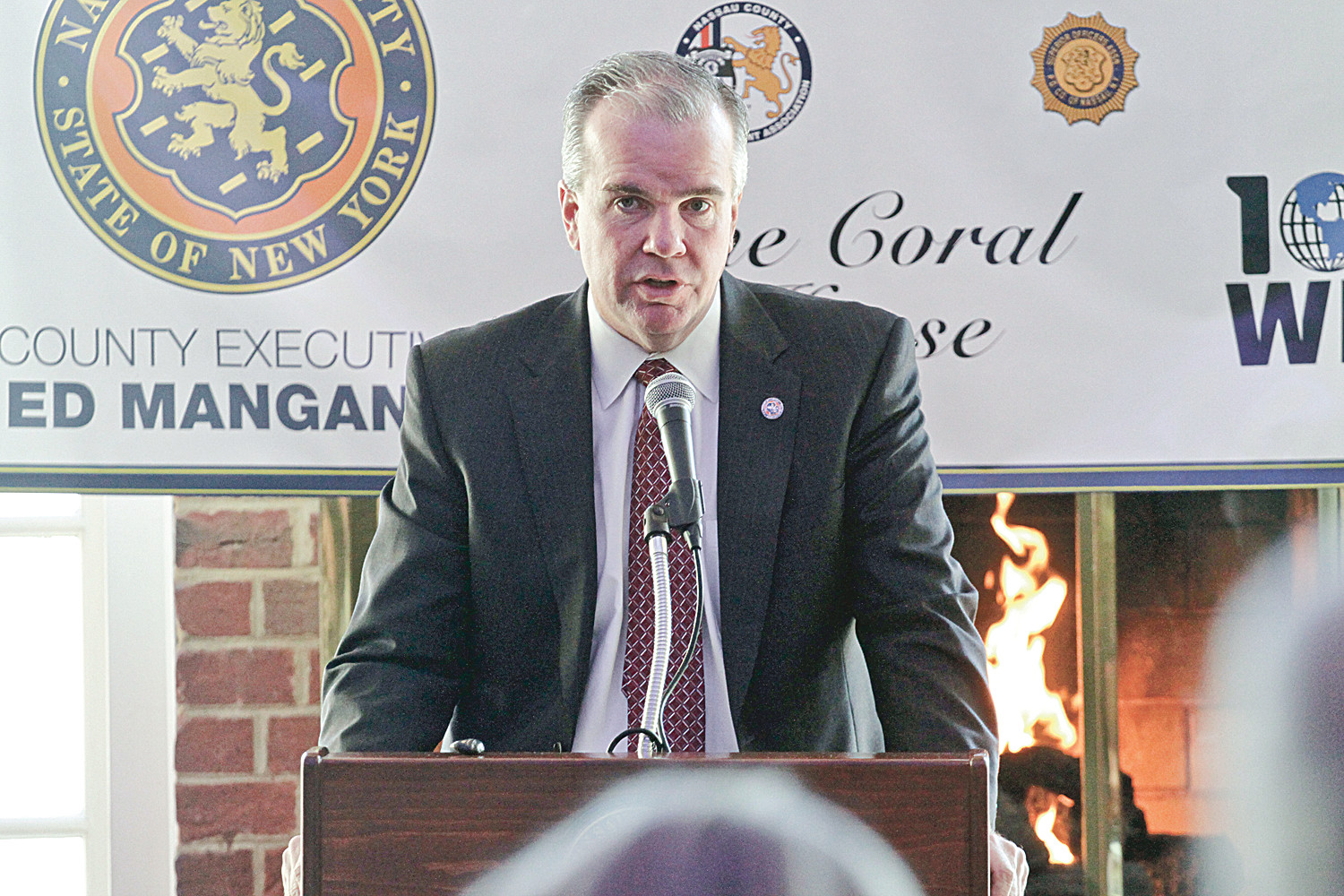Nassau County Police Department revisits use-of-force policy
Union head: Guidelines aren’t that new
A revamped set of guidelines regarding use of force by the Nassau County Police Department went into effect on July 8, with an emphasis on de-escalating situations in order to avoid force and more comprehensive review and tracking of physical contact between officers and members of the public.
The new guidelines dictate 15 changes to department policy. Officers received booklets about the policy and will be required to pass a written test on the changes.
The changes mostly address guidelines that were already in place, as the department overhauled its policy two years ago after two high-profile officer-involved shootings. The new guidelines range from rules about Taser use — testing of the devices and guidelines about when they should be used — to a requirement that officers make written reports of all incidents that involve any use of force. The policy also expands the purview of the department’s Deadly Force Review Board, which was created in 2014 to review all officer-involved shootings and incidents where police used deadly force. The board will now review incidents where officers used any force at all.
Commissioner Thomas Krumpter said the changes weren’t prompted by any specific instances in Nassau County, but reflect trends in the nation’s best police practices that emphasize transparency and improving trust with the public.
He said the review board’s expanded scope and the required documentation of use-of-force incidents would better enable the department to track them and identify patterns and problems.
Nassau Police Benevolent Association President James Carver said the policy has not changed much from what it was. “There was no major overhaul to the use-of-force policy,” he said. “The commissioner is making it sound like they reinvented the wheel.”
Carver characterized the new policy as a repackaging of rules that were already in place, taken from various manuals, memos and trainings and condensed into a single policy. He said that not much was changed as a result of the involvement of the nonprofit organization Police Executive Research Forum, based in Washington, D.C. The department signed a three-year, $675,000 contract with PERF, which has advised the NCPD on ethics reform.
Carver said that the department, which PERF identifies as forward-thinking relative to others around the nation, established community policing policies during President Bill Clinton’s administration and has remained a leader in ethics issues ever since. He questioned what influence PERF has really had.
Carver also questioned the clarity of certain language that would determine compliancy, including the term “use of force.”
“Use of force could be taking a guy’s arm to put handcuffs on him,” he said, “so there’s no clarity to that.”
While Carver said he is “not a fan of being content with the status quo” and said there is always room for improvement, he’s concerned that the new guidelines fail to address the realities of the challenges that police officers face every day. He’s also concerned that the department is seeking public approval by creating a framework that it can more easily use to declare officers in the wrong. “The only fear I have about a policy is… they could go back and say, ‘You didn’t do this,’” he said.






